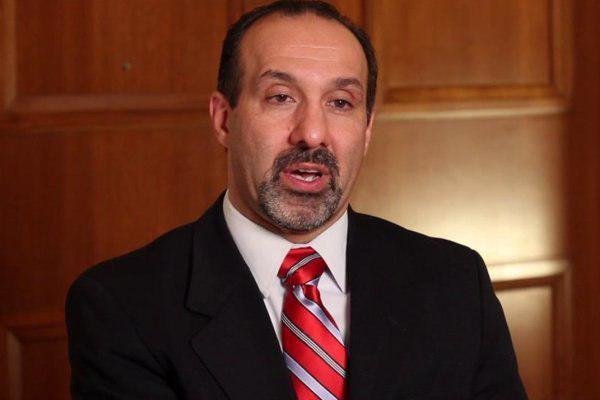How Iran Can Check Trump

How Iran Can Check Trump
Mehran Kamrava
After a few fruitful years of proactive diplomacy, following the US pullout of the nuclear agreement Iranian foreign policy has reverted back to its old habit of simply reacting to the initiatives of others. Iranian Foreign Minister Mohammad Javad Zarif has been traveling to Brussels and to various European and Asian capitals in search of guarantees for continued investments in Iran’s sagging economy and promises that Iranian oil will continue to be traded in the international markets. Zarif’s interlocutors have been sounding all the right high-minded notes about the importance of international law and of abiding multilateral agreements. All the while, European and Asian companies and banks keep pulling out of the Iranian market one after another.
Things appear to be going from bad to worse for Iran in general, and for Zarif and President Rouhani in particular, as they had vested so much of their credibility on the success of the nuclear agreement.
The issue, of course, is not the flaws in the agreement that was signed in 2015 or even alleged Iranian misdeeds in the Middle East and elsewhere. At the core of the American problem with Iran lies the fact that over the last several decades Iran has sought, with moderate success, to follow a foreign policy that puts its own national and strategic interests above those of the United States.
Compared especially to the rest of the region, this is a foreign policy that pokes a finger at the United States, undermines its hegemonic ambitions in the Middle East and elsewhere, and unsettles those regional actors long accustomed to doing America’s bidding.
The entire nuclear issue was simply an excuse to reign in Tehran’s streak for independent foreign policy. As soon as the nuclear agreement was signed, it was none other than its very European signatories that sought to make an issue out of Iran’s only viable means of defending itself, namely its ballistic missile program, and called for new pressure to be brought to bear on Tehran to dismantle its missiles. Had the US not pulled out of the nuclear agreement, after the matter of the missile program got resolved, the Europeans would likely next have joined the American narrative of how Iran’s anemic automobile industry, or perhaps its more robust shoemaking facilities, are a grave threat to regional and world peace.
For the Americans and their European and Middle Eastern allies, the problem is not Iranian behavior. It is Iran itself.
Given this American-engineered echo chamber, what is Iran to do? How can Zarif and his bosses regain the initiative and try, at least try, to craft a counter-narrative? Clearly, flying from one country to the next in search of vague and hollow promises has not helped. Diplomats often talk about the toolkit of foreign policy. But Iran does not seem to have many tools left these days.
In the years leading up to the nuclear negotiations, Iran’s Supreme Leader Ali Khamenei often used the phrase “heroic flexibility” to justify negotiations with the United States. It is time once again to put the same principle into practice. Tehran needs to show some heroic flexibility if it is to pull itself out of its current predicament.
Here is one way of doing so. Tehran should openly declare its foreign policy principles and its strategic objectives – not just in press conferences or in op-ed pieces, which foreign minister Zarif is so fond of – but in a highly public and visible forum such as the United Nations or the European Parliament. At the same forum, Iran ought to articulate precisely why it follows these strategic objectives, and which specific threats these objectives are meant to counter. Tehran should state clearly what its redlines are and why. And, most importantly, given these redlines, and the country’s determination to defend its independence and its interests, Tehran should declare its willingness to enter into immediate and unconditional talks with the Americans.
From the Paris climate accord to the Iran nuclear agreement, the Trump administration has repeatedly demonstrated that the United States simply cannot be trusted to act as an honest and reliable negotiating partner. And Iranian policymakers should know better than to take their American counterparts at their word. But at the very least this ought to give them the diplomatic initiative again, and enable Tehran to undermine the deafening anti-Iran narrative that has become so pervasive. This would also slow or maybe even altogether halt Donald Trump’s loud but blind march to war with Iran, so keenly egged on by America’s regional allies. It may even give dialogue and negotiations a renewed chance.
For the last several decades, Iran and the United States have excelled at hurling insults at each other. But only bullies find mudslinging gratifying. To counter Trump effectively, Iran ought to try some of its own heroic flexibility again, but only in a very public, transparent way.
Mehran Kamrava is Professor and Director of the Center for International and Regional Studies at Georgetown University, Qatar. His is the author, most recently, of Troubled Waters: Insecurity in the Persian Gulf (Cornell University Press, 2018).